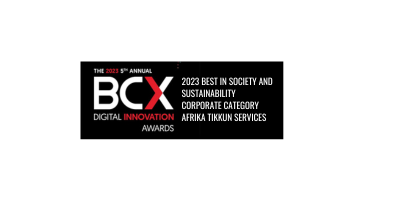According to the old African adage, if you educate a man, you educate an individual. But if you educate a woman, you educate a nation. As a nation, South Africa boasts a robust and progressive Constitution, providing a bouquet of fundamental human rights. Not enough South Africans are privy to the inalienable rights that are guaranteed in the Bill of Rights, as contained in chapter 2 of our Constitution.
Many young women and girls do not enjoy equal access to resources, freedoms and opportunities. The definition of gender equality states: women, men, boys and girls of all classes and races ought to participate as equals and have equal value.
However, the hard-earned gains of the thousands of women who, on 9 August 1956, marched to the Union Buildings in Pretoria seem to have almost been in vain. 66 years ago, women of all cultures and races stood up in unison to speak out against oppression and white domination. Today, though we are politically emancipated, many young girls and women endure financial oppression and stay trapped in a merciless cycle of poverty.
The plight of the average South African woman is foreshadowed by gender equality or rather gender inequality. Professionally, women still grapple with unfair discrimination and inequitable representation, for instance. Issues of gender equality and employment equity speak to the overall advancement of society and are a benchmark for measuring our gains and successes as a nation. According to the United Nations Populations Fund (UNFPA), “Women who are healthy, educated and in charge of their lives contribute to the health and wealth of whole families, communities and their nations.”
The widespread gender disparities in maternal health, education at higher levels, employment, poverty, political participation, and fulfilment of human rights should be apex priorities for our government and political leaders.
As Afrika Tikkun Services (ATS), bridging the gap and alleviating the disparities that are synonymous with underprivileged communities is at the core of the work we do. We are fervent advocates of empowering our young people, especially our young women, and seek to transform society one young person at a time. Our work is hinged on the core values of empowerment, sustainability and resilience, ubuntu, honesty and transparency, quality through excellence, and responsible kindness. Whilst uplifting our young women, we believe in simultaneously empowering our young men too. ATS assists corporate companies to identify and recruit young, talented individuals to be absorbed into the workspace.
At ATS, every young person deserves the opportunity to realise their full potential. Our strategy ensures success as we deliberately involve both genders and seek to level the proverbial playing field for our young men and women.
Our Work Readiness programme serves as the foundation programme in our career development curriculum and journey with our young people. With the current youth unemployment rate of 66%, we consider Work Readiness as a vital training component. It is one of the most significant tools to empower young people with the critical skills needed to prepare them for the working world. The programme is designed to give unemployed youth the theoretical and practical framework and language needed for their professional and behavioural competencies including intrinsic foundational skills, personal mastery and workplace skills.
Our specialised skills and learnership programmes focused on developing capable and competent skilled young people for the ICT, wholesale and retail, logistics, hospitality, financial services and vocational/artisan/manufacturing sectors, are designed to align young people to in-demand jobs in the economy.
Our work experience programmes, in particular, our collaboration with the Youth Employment Service (Yes) complements and fortifies our efforts in ensuring that young people participate in the economy. Youth Employment Service (Yes) aims to create one million work opportunities for unemployed black youth in South Africa. ATS was founded to transform the lives of youth while simultaneously helping to grow the business they are placed. Yes placements speak to ATS’ vision of enabling young men and women to become economically empowered.
Ultimately, it is up to all of us to ensure that tangible women empowerment becomes a lived reality in our lifetime. However, to level the proverbial playing field, we dare not be happy with the status quo that excludes many women from the social and economic mainstream. By working together, we can ensure a societal shift so that women can take their rightful place and contribute to the country’s socio-economic growth and development. Ultimately, it is a collective and collaborative effort that will make a marked difference to the uneven playing field, for our young women and girls and indeed our young men and boys too.
Source: bizcommunity.com


